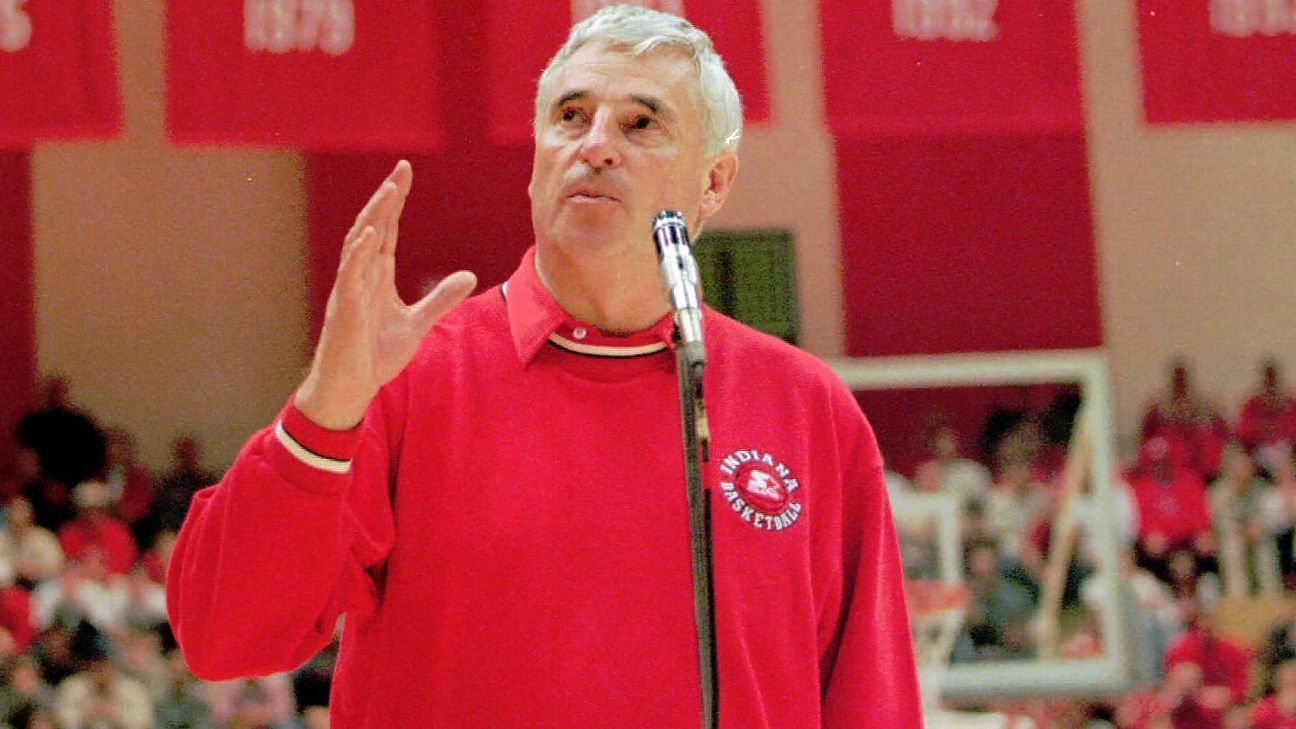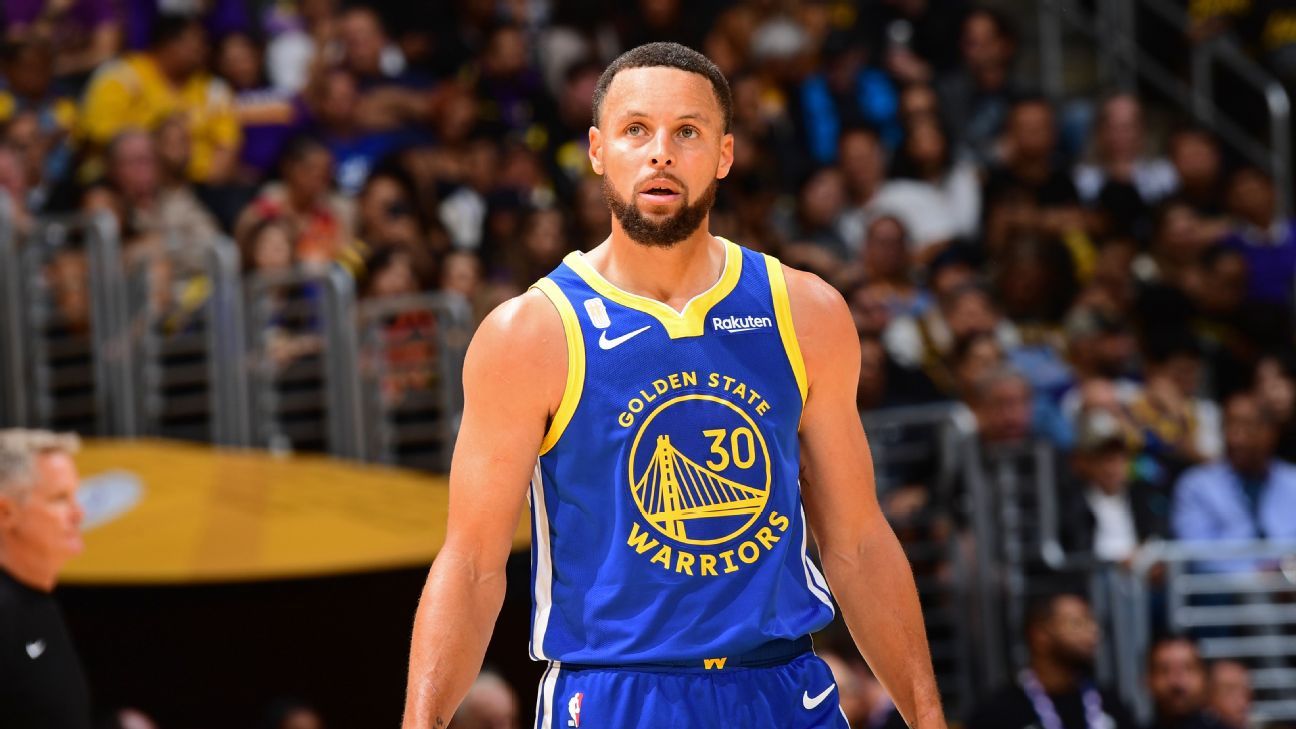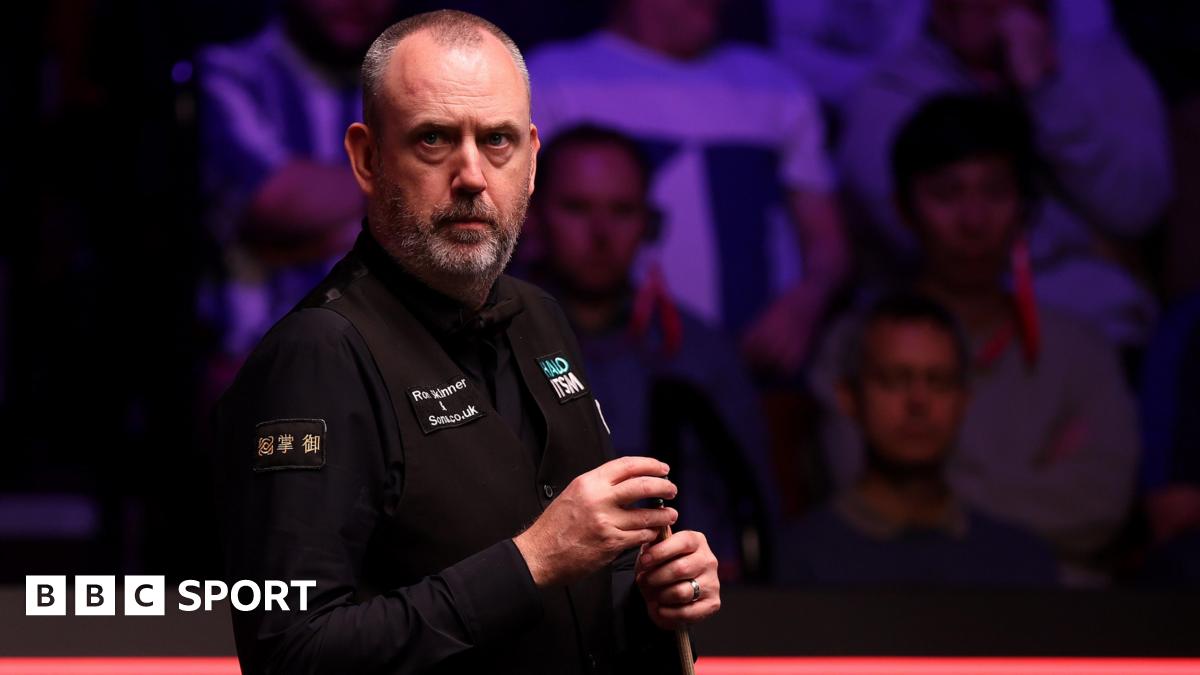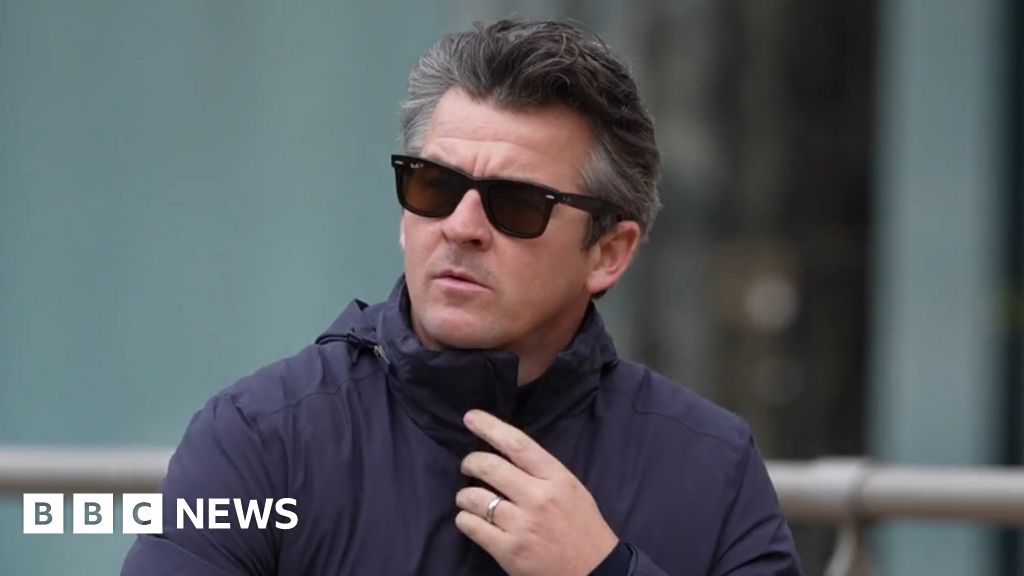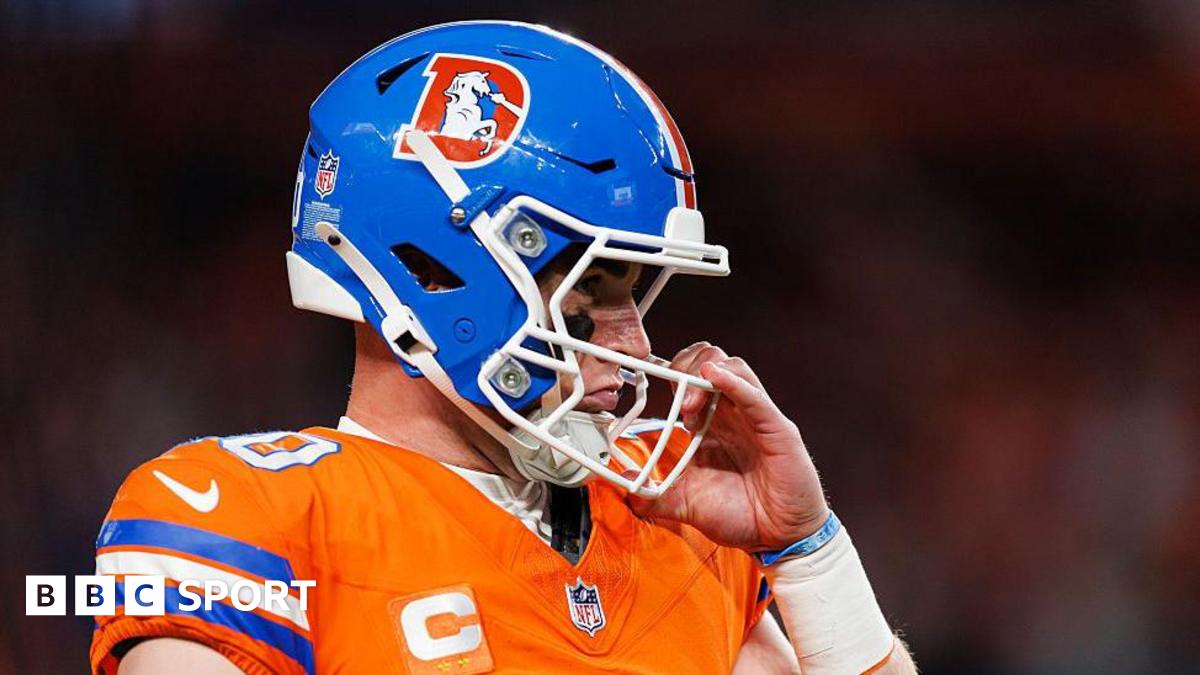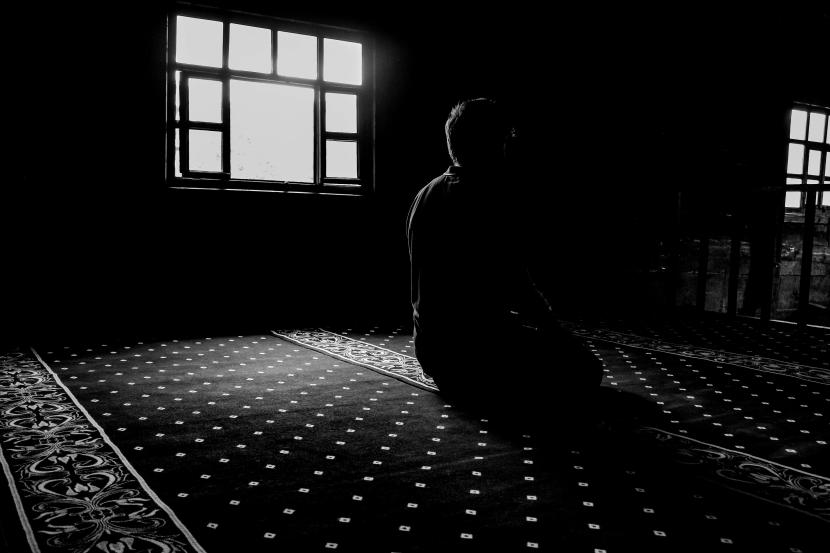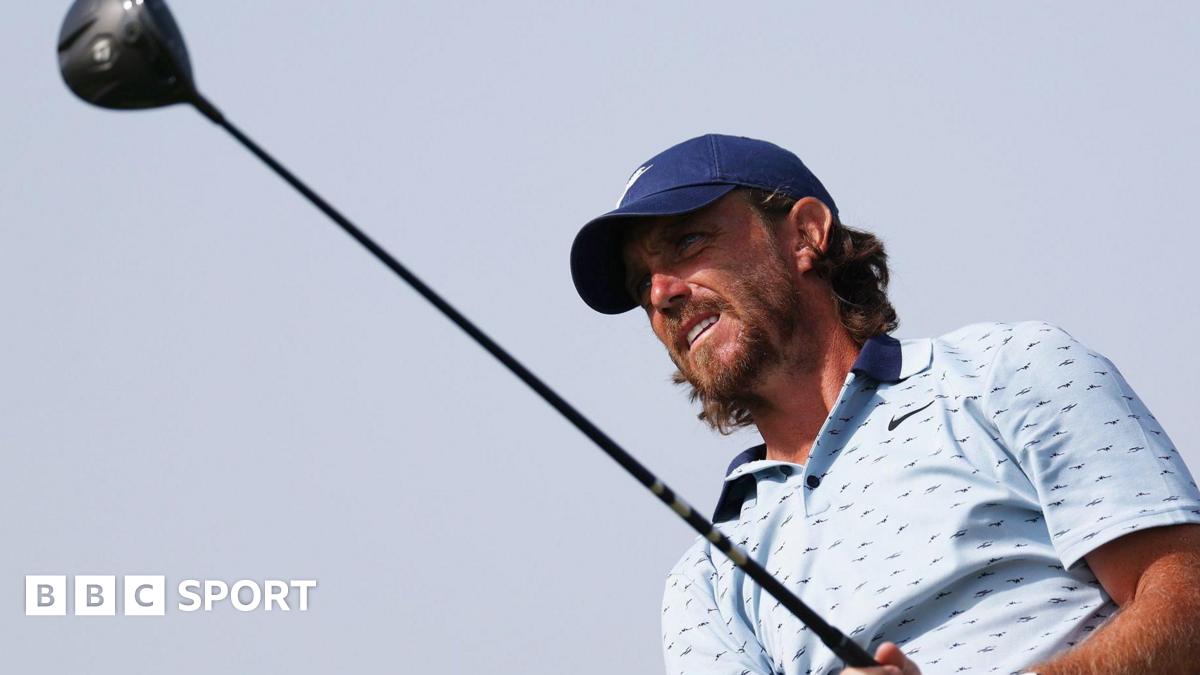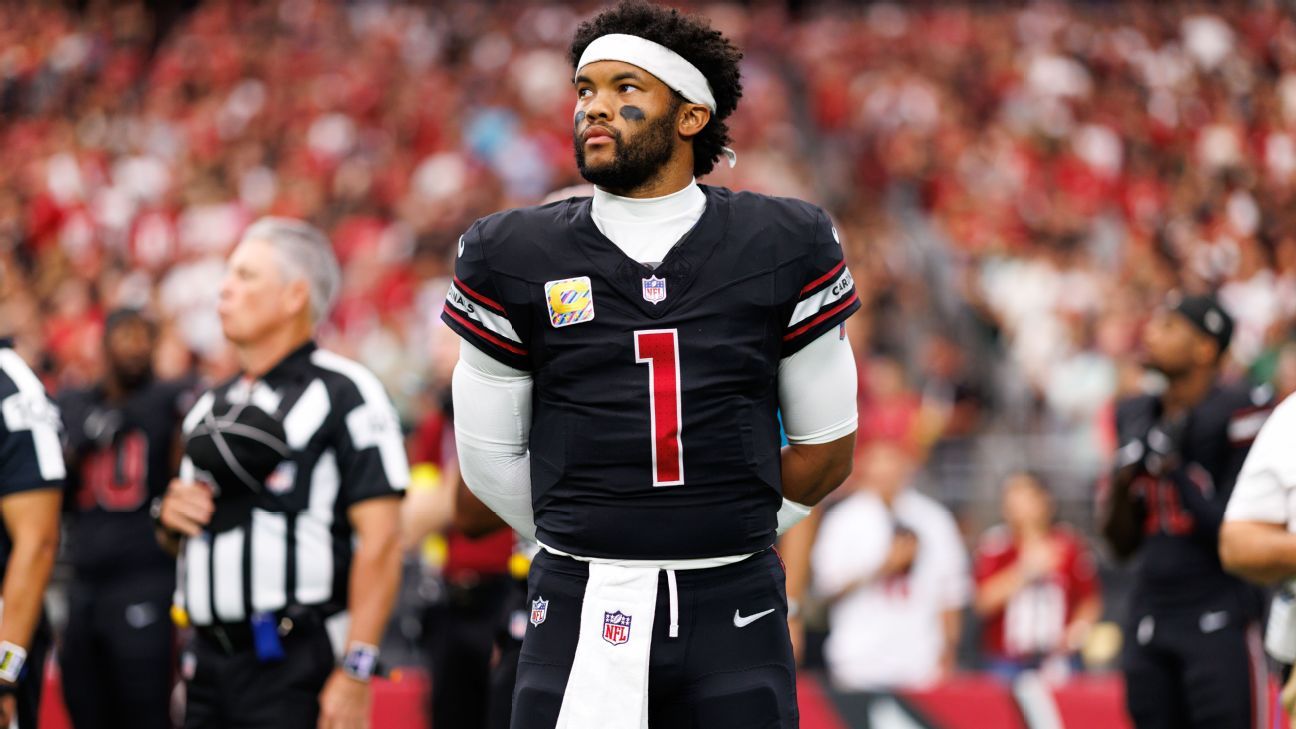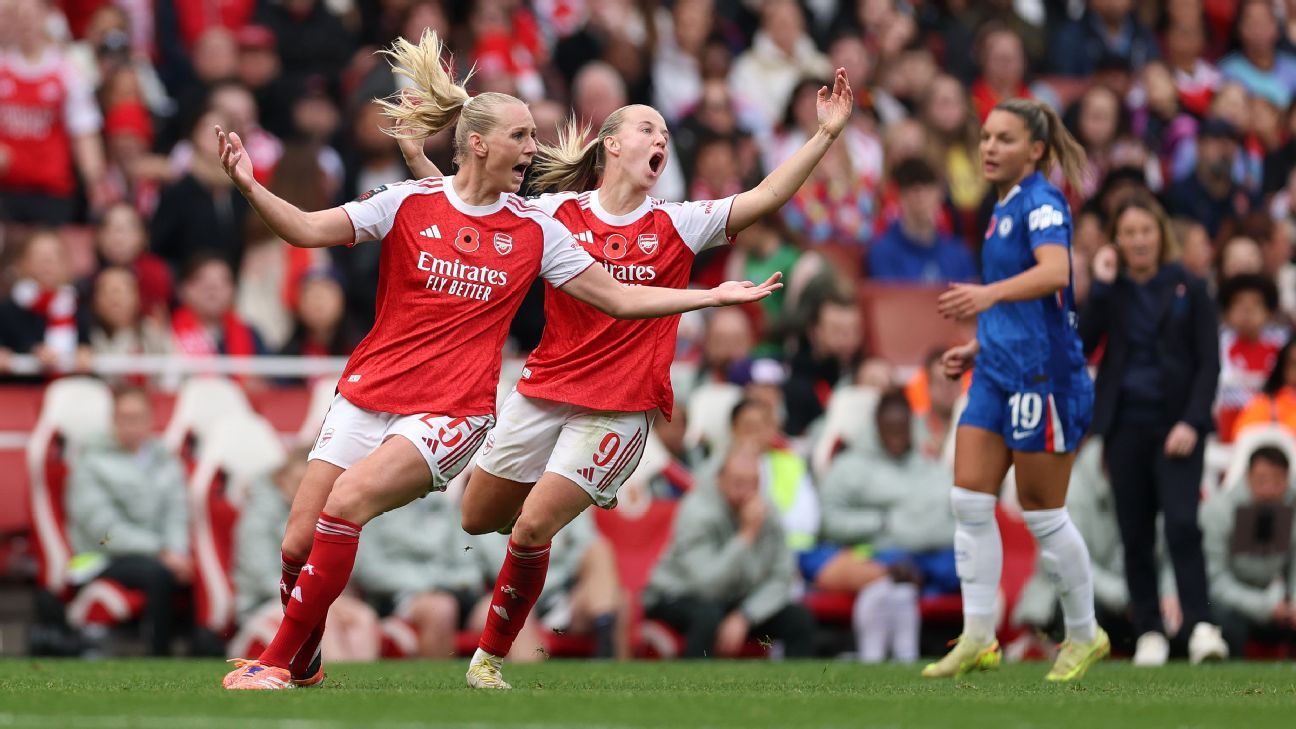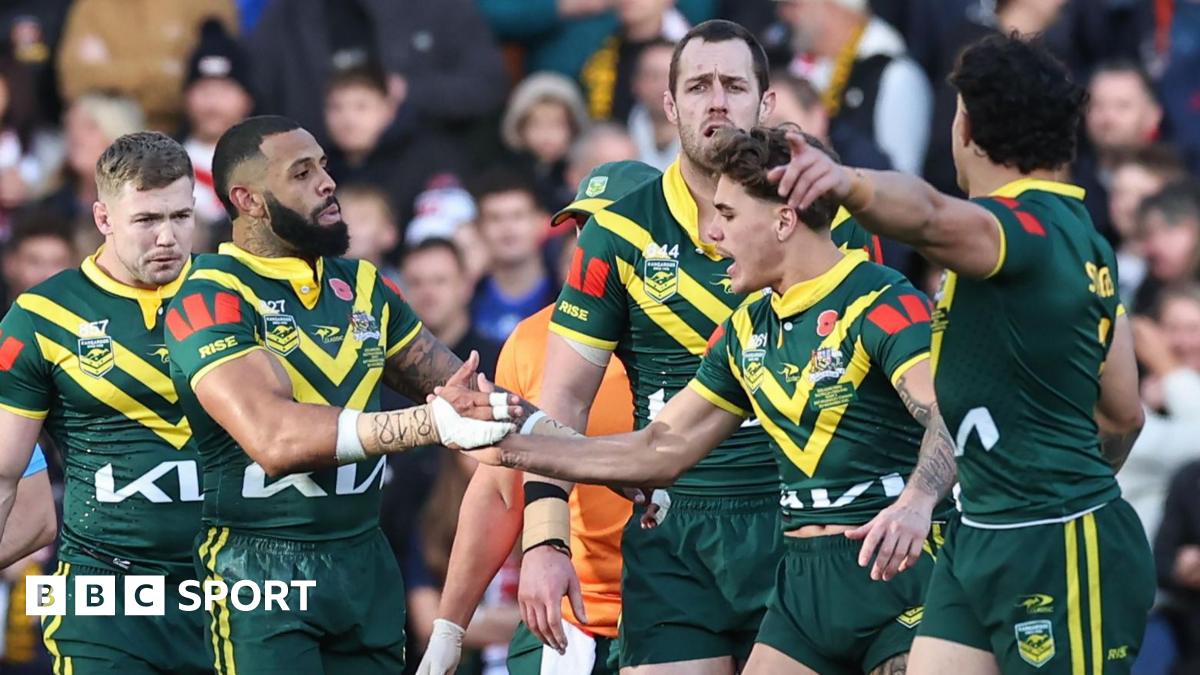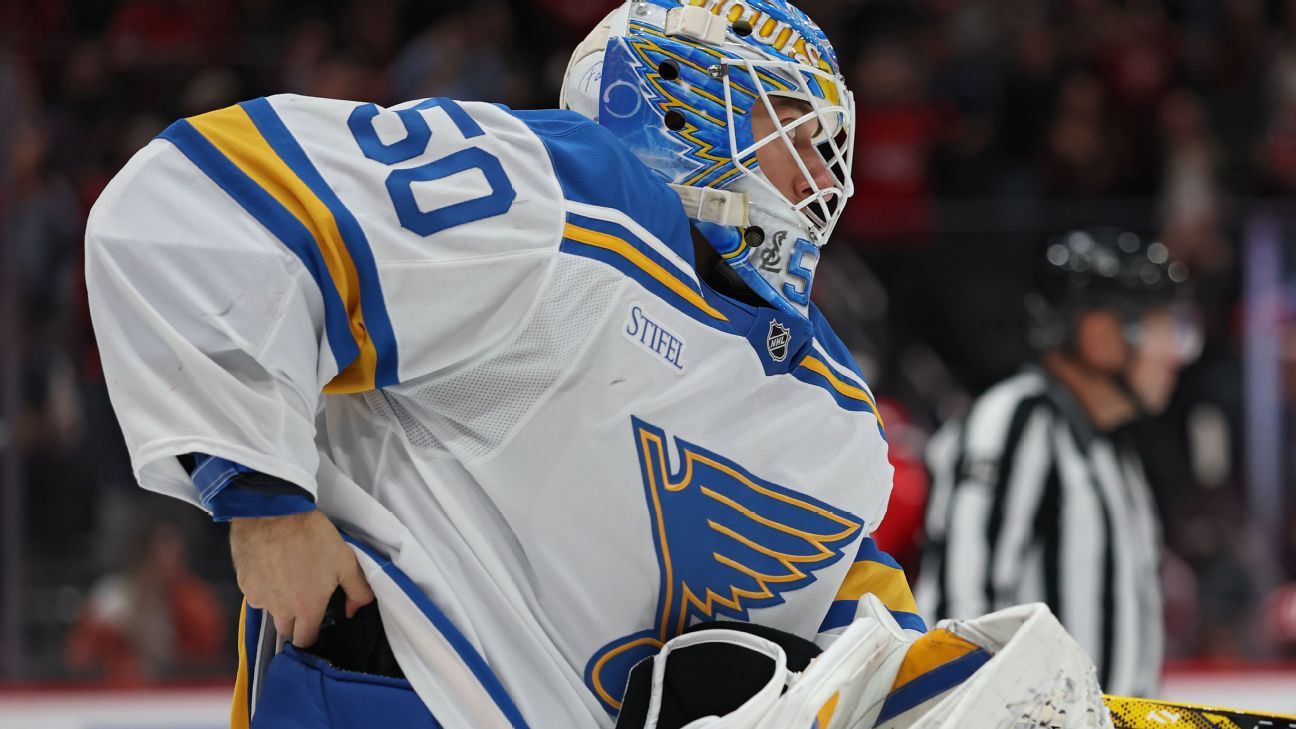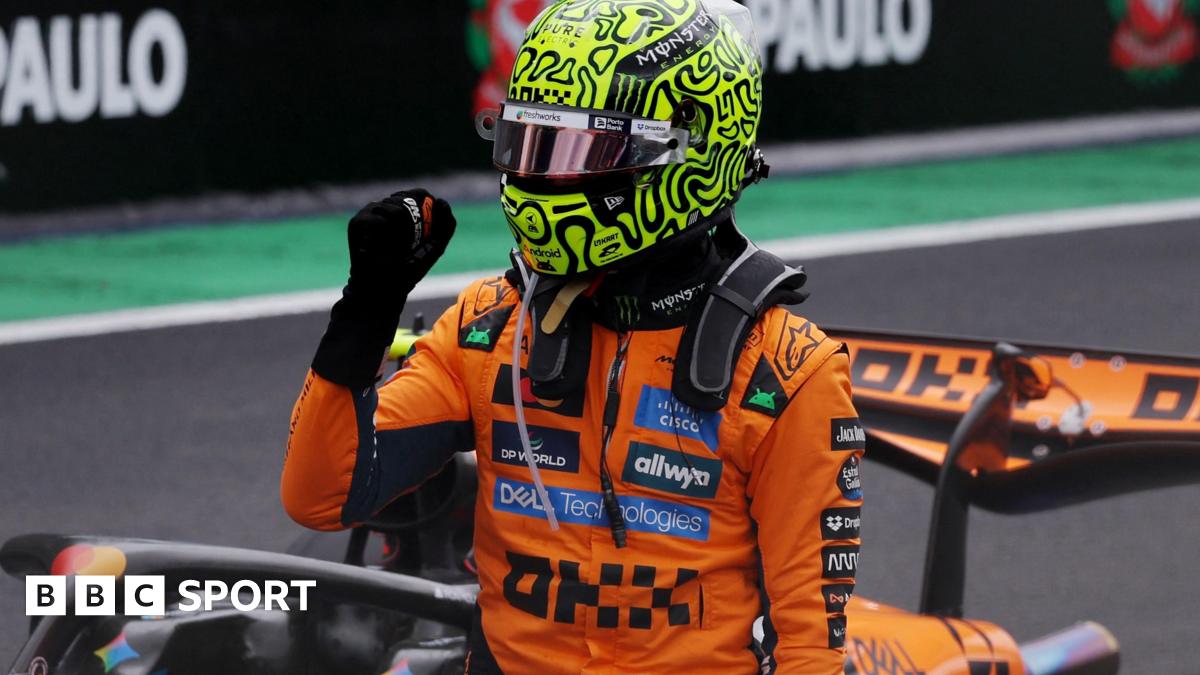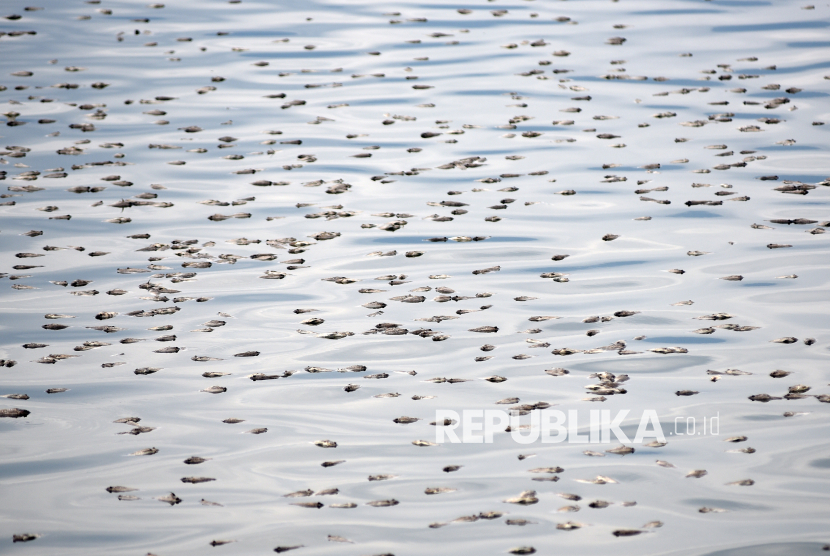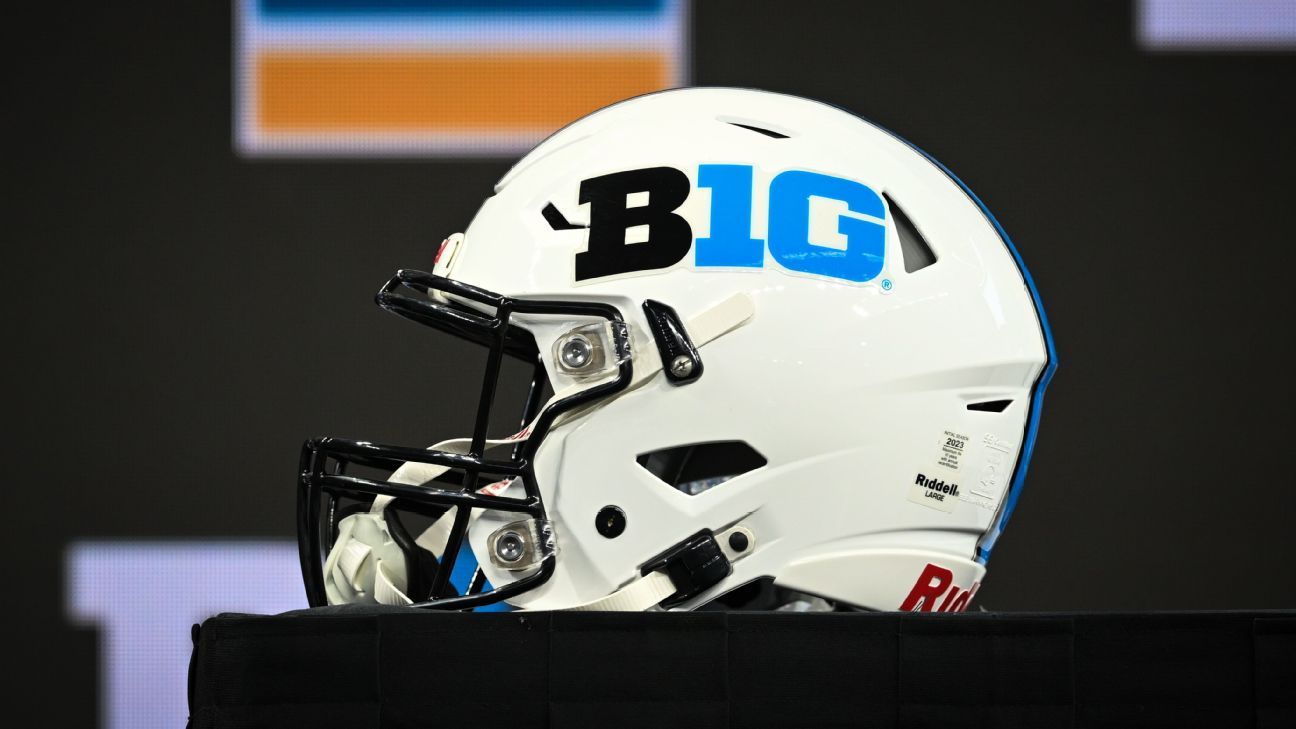
Jon ArnoldOct 13, 2025, 01:32 PM ET
PARAMARIBO, Suriname -- The referee had blown his whistle, but no one at the Franklin Essed Stadion left the stands. The drummers kept drumming, the horn players kept playing, and the Suriname men's national team took a lap around the field.
The hosts, known by fans as the Natio, appeared headed for their first defeat in World Cup qualifying, but a stunning stoppage-time goal by Virgil Misidjan earned a 1-1 draw with visiting Guatemala and the point that comes with it. Misidjan's missile nearly hit his own goalkeeper, Etienne Vaessen, who came up to try to create chaos on a corner kick. But Vaessen jumped out of the way as Misidjan took a shot from outside the box, giving Guatemala goalkeeper Nicholas Hagen only a slight glimpse as it passed him and leveled the score.
Halfway through the final round of World Cup qualification, Suriname is atop the Group A standings. It's the closest the country has come to qualification since the 1970s, and if it can stay there for another three matches, its first World Cup awaits.
After last Friday's match, Vaessen couldn't avoid being drawn into the crowd that pressed along the fence, with child after child and fan after fan asking for a selfie or an autograph.
They are national heroes, yet Vassen was not born here. Neither was Misidjan. In fact, only one player who saw action in Friday's tie, forward Gleofilo Vlijter, grew up in Suriname. The rest hail from the Netherlands -- which colonized the area in the 17th century and ruled it until 1975 -- and are eligible to play for the nation via their parents or grandparents.
But watching the crowd clamor for Vaessen, it was clear: This is Suriname's team.
- A dash of Eredivisie and MLS: Why Indonesia is 'not like before'
- 2026 World Cup: Who has qualified, and how the rest can make it
- The evolution of the World Cup ball as 2026's Trionda is unveiled
"They love football," Vassen told ESPN. "There was that question at first, 'Oh, the players are from Europe,' but I feel at home here. I give everything for the country, and they feel that, too. I keep good, so they're happy with me. I'm happy with them. I can make time for a little selfie to make people happy. It's really important."
Indeed, soccer has a long history in Suriname. Club team Transvaal twice won the Concacaf Champions Cup, and Surinamese players' influence on Dutch football has been strong. Edgar Davids, Aron Winter and Clarence Seedorf, plus current Suriname manager Stanley Menzo and assistant Henk Fraser, were born in the Caribbean nation but instead represented the Netherlands.
Until recently, though, soccer in Suriname was in a decades-long swoon. Though FIFA regulations permit players with a grandparent from that country who acquire a passport, it was only ahead of its 2021 return to the Concacaf Gold Cup, its first participation in the continental championship in 36 years, that Suriname's government would issue athletes passports without requiring them to surrender their other nationality.
The change was spearheaded by Menzo's predecessor as Suriname manager, Dean Gorré. Another ex-pro born in Suriname, Gorré was in his second spell managing the team, and after earning the Gold Cup place, he and his staff lobbied government officials to make a change that would benefit the national soccer teams but also could make Suriname successful in Olympic sports.
"We qualified for the Gold Cup with amateurs, which was fantastic," Gorré said. "After that, we constantly spoke to the people in the government. I told them why it's so important for us to represent Suriname on the highest level and what the country can achieve from this. Finally, it went into a discussion and they said, 'We're going to make it happen.'"
After that, players who had wanted to suit up for Suriname committed quickly, with more than two dozen new recruits joining since. They are helping Suriname not just improve but compete almost immediately for something many people here never thought they would see: a place in the World Cup.
Doing so would bring a great deal of joy to Suriname, something Menzo remembers a lot of growing up in Paramaribo, where he learned not only shot stopping as a goalkeeper, but also how to use his feet. That made him a perfect choice as the No. 1 for new Ajax manager Johan Cruyff in 1985-86, and Menzo went on to win a pair of European trophies with the Dutch giants in more than 200 appearances.
🇸🇷 Here are some of the celebrations in the Essed Stadium after Suriname's last-minute equalizer that keeps the Natio on top of the group - ahead of the other Group A match tonight. pic.twitter.com/zpC3UDoKIt
— Jon Arnold (@ArnoldcommaJon) October 10, 2025"When I left in 1971, this country was a paradise," Menzo told ESPN. "Because I came back often, I saw it go down."
Suriname's independence in 1975 left a power vacuum that was eventually filled in 1980 by a military coup. One of the bleakest moments of that transitional period came in December 1982, when coup leader Dési Bouterse rounded up more than a dozen prominent critics and had them executed. Among them was André Kamperveen, who became the first Surinamese player to play in the Netherlands' top flight. He went on to captain (and later manage) the national team, and he was also an administrator, becoming a FIFA vice president and founding the Caribbean Football Union, a sub-confederation in Concacaf. Just months before his death, he had attended the 1982 FIFA World Cup in Spain.
Some years later, a social worker named Sonny Hasnoe brought together a group of Surinamese players plying their trade in the Netherlands dubbed the "Colorful Eleven" that played various friendly matches, hosting Surinamese club SV Robinhood in 1986 and playing the next two years in the Netherlands. In 1989, they were en route to a mini-tournament in Suriname when tragedy struck.
Surinam Airways Flight 764 from Amsterdam to Paramaribo crashed in what accident investigators later determined was a cascading series of pilot errors made by the American flight crew contracted to fly for the airline. Some 178 people died, including 15 members of the Colorful Eleven's traveling party. Menzo was set to take part in the tournament but landed in the country a day earlier than most of the group.
"It comes back in your memory, in your life for a few days. Then it's gone again," Menzo said. "The 7th of June, we'll always remember it. Sometimes, I think about it. I see a picture and think about it, but it's not something that's constantly with us. We live in the now and have moments far behind us."
The now that the Natio lives in is giving the country a reason to celebrate, as they did last month with a draw against Panama and a win at El Salvador, plus Friday's draw that set off the jubilant moments.
"We need some positivity," Menzo said. "We hope we can give the country that with football. Football, especially in this country, is a sport for everybody. Everybody loves football.
"We're very proud as Surinamese people. It's good to give them that pride back. Suriname always was negative in the news, and now it's something positive."
The hope extends far beyond Suriname, back to the family, friends and other members of the diaspora in Europe.
"I came from Amsterdam, and everywhere I walk, people talk to me about Suriname, how we have to qualify," winger Sheraldo Becker told ESPN. "They want us to do it for them; we want to do it for our country. More for them than for ourselves."
The attention that Suriname is receiving from the Netherlands isn't helping only the national team, as many Dutch-Surinamese players are taking their own steps to pay homage to their roots. Both of UEFA Champions League winner Georginio Wijnaldum's parents are from Suriname, and he recently partnered with an organization to help fund renovations to a public school. Though Wijnaldum's nearly 100 appearances for the Dutch national team make him ineligible to take the field for Suriname, he wore a red Natio jersey with his name and No. 8 on the back on Friday, taking in the match from one of the few semi-private areas in the 3,150-seat stadium.
Wijnaldum hopes others will follow his lead by getting involved with projects on the ground in Suriname, and not just soccer players. Many people in Suriname are excited about the potential of outside investment from other sectors helping bolster sport, culture and other elements of society they believe are neglected.
"It doesn't just mean a lot to me but for the country," Wijnaldum told ESPN in Paramaribo. "I did something for charity, which is positive, but hopefully other people -- not just footballers, but people who have money -- can invest in things here to give children and the people of a country a better future.
"I think the football team is really good to help the county move forward."
At the very least, it will help other elements of soccer develop beyond just the Dutch-based players on the men's national team.
"If Suriname does qualify for the World Cup, it would go worldwide," said Jean-Pierre Ristra, who works in marketing and helps run a cafe. "There'd be more attention for the young ladies, the youth team, to give them football as a profession. That would open a whole lot more doors."
Suriname heads into Tuesday's match in Panama with a chance to get another road win in Central America and go at least two points clear at the top of the group with two games left. Of course, it will not be easy against pre-round favorites Panama, who has the same opportunity -- also sitting on five points but behind Suriname because of goals scored.
Before this cycle with its expanded 48-team World Cup field, the closest Suriname has ever come to making the World Cup came in 1977. The Natio won its side of the Caribbean bracket and traveled to Mexico for the 1977 Concacaf Championship that served as a qualifier.
Only the winner went through to the 1978 World Cup tournament, and Suriname finished in last, failing to earn a point. Still, that team is fondly remembered, with Menzo inviting several veterans of that squad to speak to the team at an event two nights before the Guatemala match.
There is a hope that this current group of Dutch-Surinamese players can find strength in what Surinamese soccer was in the 1970s and 1980s and once again make the nation relevant regionally, if not beyond.
"I have to feel like I'm one of those carrying on the legacy. I know where Suriname was, and I know where we are now," Menzo said. "The whole process with players abroad started somewhere -- not with me. It's a long road, and everybody is part of this legacy. Now, I'm part of the legacy. We're in a stage where we can finalize it.
"That's what I told the former players of 1977: You were on the step of a World Cup, but maybe the step was too big for you at the time. Now, we're also a step from qualification. What you couldn't achieve, let's try to achieve it now. We have a strong belief we can achieve it -- but belief and achieving it are different things."





